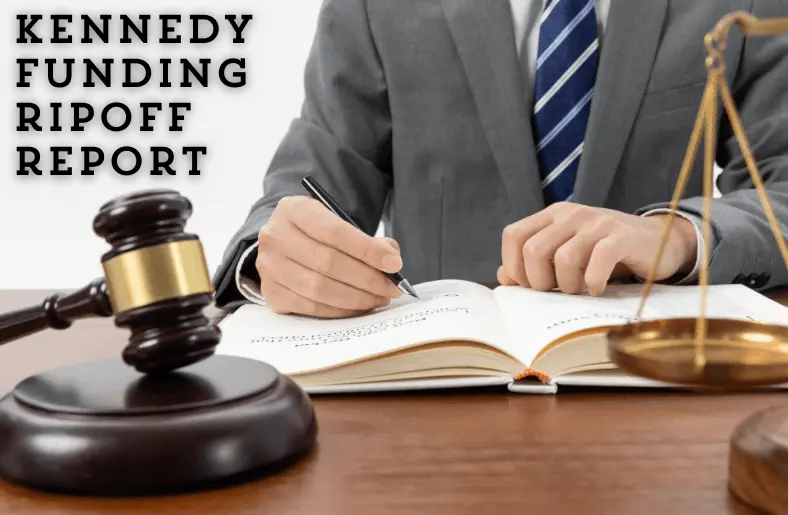Introduction to Kennedy Funding’s Ripoff Report
Kennedy Funding has been a significant player in the lending industry, but not without its share of controversies. The Kennedy Funding Ripoff Report has drawn attention from borrowers and investors alike, raising questions about the company’s practices. With allegations swirling around, it’s crucial to understand what these claims mean and how they impact both current and potential clients.
As we delve into this topic, we’ll explore the details behind the allegations against Kennedy Funding, their response to criticism, and any legal actions taken by the company. It’s also essential to consider how such reports affect their reputation in an already competitive market. Whether you’re considering working with them or simply want to stay informed about business practices within this sector, understanding these dynamics is key. Let’s unpack it all together!
The Allegations Against Kennedy Funding
Kennedy Funding has faced a variety of allegations that paint a troubling picture. Critics often claim the company engages in predatory lending practices, taking advantage of vulnerable borrowers. These accusations suggest that terms and conditions may not always be transparent.
Some former clients have voiced dissatisfaction regarding communication issues. They allege delays in responses or lack of clarity surrounding their loans. This has raised questions about the company’s customer service standards.
Additionally, there are claims related to high fees and hidden costs associated with financing options. Borrowers report feeling misled about what they would ultimately owe.
These allegations, while serious, are part of a broader conversation about ethical practices within financial services. It’s essential to consider multiple perspectives before forming an opinion on any business based solely on these reports.
Explanation of Kennedy Funding’s Response
Kennedy Funding has actively addressed the allegations presented in the Ripoff Report. Their response emphasizes a commitment to transparency and consumer trust.
They argue that many claims are unfounded, highlighting their established track record of successful transactions. The company insists on maintaining open lines of communication with clients to address concerns before they escalate.
Kennedy Funding also points out their dedication to ethical business practices. They assert that numerous satisfied customers support this claim through positive testimonials.
In light of these accusations, the company continues to engage with its stakeholders, aiming for constructive dialogue rather than confrontation. This proactive approach showcases their intention to resolve misunderstandings while reinforcing their brand integrity in a competitive market.
Legal Action Taken by Kennedy Funding
Kennedy Funding has not taken the allegations lying down. They have actively pursued legal action against those perpetuating false claims. The company asserts that the accusations lack foundation and are damaging to its reputation.
In response, Kennedy filed lawsuits aimed at protecting its brand and restoring public perception. These actions signal a commitment to addressing misinformation head-on.
The legal strategy includes cease-and-desist letters directed at individuals and entities responsible for spreading negative information. By doing so, Kennedy seeks to mitigate any further reputational harm.
There is also an emphasis on seeking damages for defamation in some cases. This tactic highlights their seriousness about defending their business interests.
As they navigate these challenges, Kennedy Funding aims to clarify misconceptions while ensuring accountability among critics who spread unverified information online.
Impact on Kennedy Funding’s Reputation and Business
The allegations surrounding the Kennedy Funding Ripoff Report have undeniably cast a shadow over the company’s reputation. Trust is paramount in finance, and any hint of impropriety can lead to skepticism among potential clients.
Many investors may hesitate to engage with Kennedy Funding due to these claims. This hesitation can translate into lost business opportunities and partnerships.
Moreover, competitors might seize this chance to position themselves as more trustworthy alternatives. Reputation damage can linger long after disputes are resolved, affecting future negotiations and deals.
Kennedy Funding’s ability to attract new clients could be significantly impacted if they don’t address these concerns head-on. Building back trust requires transparency, effective communication, and consistent delivery on promises made to stakeholders.
In an industry where credibility is everything, navigating through such controversies becomes essential for sustaining growth and business viability.
Tips for Interpreting Ripoff Reports
When reading a Ripoff Report, focus on the details. Look for specific complaints and examine whether they are recent or dated. Fresh reports might indicate ongoing issues.
Check the responses from businesses. A thoughtful reply can reveal how seriously a company takes customer concerns. It also shows their willingness to resolve conflicts.
Consider the overall tone of complaints. Are they emotional and exaggerated, or do they present factual accounts? Emotional language may signal bias.
Search for patterns among multiple reports. If several users mention similar problems, this could highlight systemic issues within the business practices.
Cross-reference with other review platforms before forming an opinion. Broader feedback can provide clarity beyond just one source, helping you make informed decisions in your dealings.
Conclusion: Importance of Due Diligence in Business Transactions
When navigating the complex world of business transactions, conducting thorough due diligence is essential. This process involves scrutinizing all available information about a company, including any negative feedback found in reports like the Kennedy Funding Ripoff Report.
Understanding these allegations and responses helps potential partners or investors make informed decisions. It creates a clearer picture of the company’s reputation and financial health.
Due diligence not only protects your interests but also fosters trust between parties involved in a transaction. Always remember that taking time to research can save you from future complications or loss. In today’s digital age, where information flows freely, being proactive about seeking out both positive and negative reviews is more important than ever.
Engaging with platforms reporting on businesses gives you insight into their operations and customer relations. Keep an open mind while evaluating such reports—balancing them against other sources of information can lead to better judgment calls in your business dealings.
The landscape of business can be tricky to navigate, but with careful consideration and comprehensive investigation, it becomes manageable—and much safer for everyone involved.










